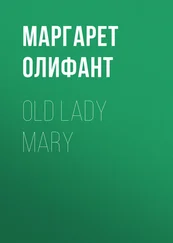Маргарет Олифант - Ombra
Здесь есть возможность читать онлайн «Маргарет Олифант - Ombra» — ознакомительный отрывок электронной книги совершенно бесплатно, а после прочтения отрывка купить полную версию. В некоторых случаях можно слушать аудио, скачать через торрент в формате fb2 и присутствует краткое содержание. Жанр: foreign_prose, literature_19, foreign_antique, на английском языке. Описание произведения, (предисловие) а так же отзывы посетителей доступны на портале библиотеки ЛибКат.
- Название:Ombra
- Автор:
- Жанр:
- Год:неизвестен
- ISBN:нет данных
- Рейтинг книги:3 / 5. Голосов: 1
-
Избранное:Добавить в избранное
- Отзывы:
-
Ваша оценка:
- 60
- 1
- 2
- 3
- 4
- 5
Ombra: краткое содержание, описание и аннотация
Предлагаем к чтению аннотацию, описание, краткое содержание или предисловие (зависит от того, что написал сам автор книги «Ombra»). Если вы не нашли необходимую информацию о книге — напишите в комментариях, мы постараемся отыскать её.
Ombra — читать онлайн ознакомительный отрывок
Ниже представлен текст книги, разбитый по страницам. Система сохранения места последней прочитанной страницы, позволяет с удобством читать онлайн бесплатно книгу «Ombra», без необходимости каждый раз заново искать на чём Вы остановились. Поставьте закладку, и сможете в любой момент перейти на страницу, на которой закончили чтение.
Интервал:
Закладка:
Margaret Oliphant
Ombra
Simon. … ‘Your tale, my friend,
Is made from nothing, and of nothings spun—
Foam on the ocean, hoar-frost on the grass,
The gossamer threads that sparkle in the sun
Patterned with morning dew—things that are born
And die, are come and gone, blossom and fade
Ere day mature has drawn one sober breath.’
Philip. ’Tis so; and so is life; and so is youth;
Foam, frost, and dew; what would you? Maidens call
That filmy gossamer the Virgin’s threads,
And virgins’ lives are woven of threads like those.’
CHAPTER I
Katherine Courtenay was an only child, and a great heiress; and both her parents had died before she was able to form any clear idea of them. She was brought up in total ignorance of the natural life of childhood—that world hemmed in by the dear faces of father and mother, brother and sister, which forms to most girls the introductory chapter into life. She never knew it. She lived in Langton-Courtenay—with her nurse first, and then with her governess, the centre of a throng of servants, in the immense desolate house. Even in these relationships the lonely child did not find the motherhood which lonely children so often find in the care of some pitying, tender-hearted stranger. Her guardian, who was her father’s uncle, an old man of the world, was one of those who distrust old servants, and accept from their inferiors nothing more than can be paid for. He had made up his mind from the beginning that little Kate should not be eaten up by locusts, as he said—that she should have no kind of retainers about her, flattering her vanity with unnecessary affection and ostentatious zeal; but only honest servants (as honest, he would add, as they ever are), who expected nothing but the day’s wages for the day’s work. To procure this, he allowed no one to remain long with his ward. Her nurse was changed half a dozen times during the period in which she required such a guardian; and her governess had shared the same fate. She had never been allowed to attach herself to one more than another. When any signs of feeling made themselves apparent, Mr. Courtenay sent forth his remorseless decree. ‘Kate shall never be any woman’s slave, nor any old servant’s victim, if I can help it,’ he said. He would have liked, had that been practicable, to turn her into a public school, and let her ‘find her level,’ as boys do; but as that was not practicable, he made sure, at least, that no sentimental influences should impair his nursling’s independence and vigour. Thus the alleviations which natural sympathy and pity might have given her, were lost to Kate. Her attendants were afraid to love her; her often-changed instructresses had to shut their hearts against the appeal of compassion, as well as the appeal made by the girl’s natural attractiveness. She had to be to them as princesses are but rarely to their teachers and companions—a half-mistress, half-pupil. An act of utter self-renunciation was required of them before ever they set foot in Langton-Courtenay. Mr. Courtenay himself made the engagement, and prescribed its terms. He paid very liberally; and he veiled his insolence under the garb of perfect politeness. ‘I do not wish Miss Courtenay to make any friends out of her own class,’ he would say. ‘I shall do my utmost to make the temporary connection between my niece and you advantageous to yourself, Miss –. But I must exact, on the other side, that there shall be no sentimental bonds formed, no everlasting friendships, no false relationship. I have seen the harm of such things, and suffered from it. Therefore, if these should be your ideas–’
‘You wanted a governess, I heard, and I applied for the situation—I never thought of anything more,’ said quickly, with some offence, the irritated applicant.
‘Precisely,’ said Mr. Courtenay. ‘With this understanding everything may be decided at once. I am happy to have met with a lady who understands my meaning.’ And thus the bargain would be made. But, as it is natural to suppose, the ladies who were willing to take service under these terms, were by no means the highest of their class. Sometimes it would happen that Mr. Courtenay received a sharp rebuff in these preliminary negotiations. ‘I trust, of course, that I shall grow fond of my pupil, and she of me,’ said one stouter-hearted woman, for example. And the old Squire made her a sarcastic bow.
‘Quite unnecessary—wholly unnecessary, I assure you,’ he said.
‘Then there is nothing more to be said about it,’ was the reply; and this applicant—whose testimonials were so high, and were from such ‘good people’ (meaning, of course, from a succession of duchesses, countesses, and families of renown), that Mr. Courtenay would, he confessed, have given ‘any money’ to secure her services—got up with impatience, and made him a curtsey which would, could she have managed it, have been as sarcastic as his bow, but which, as it turned out, was only an agitated and awkward obeisance, tremulous with generous rage: ‘such an arrangement would be quite impossible to me.’
And so poor Kate missed a woman who might have been a kind of secondary mother to the forlorn child, and acquired a mercenary dragon instead, who loved nobody, and was incapable of attracting love.
The consequences of this training were not, perhaps, exactly such as might have been expected. Kate’s high spirits and energetic temper retained a certain ascendancy over her circumstances; her faults were serious and deep-rooted, but on the surface she had a gaieté du cœur —an impulsive power of sympathy and capacity for interesting herself in other people, which could not but be potent for good or evil in her life. It developed, however, in the first place, into a love of interference, and consequently of gossip, which would have alarmed anyone really concerned for her character and happiness. She was kept from loving or from being loved. She was arbitrarily fixed among strangers, surrounded with faces which were never permitted to become familiar, defrauded of all the interests of affection; and her lively mind avenged itself by a determination to know everything and meddle with everything within her reach. Kate at fifteen was not mournful, despondent, or solitary, as might have been looked for; on the contrary, she was the very type of activity, a little inquisitive despot, the greatest gossip and busy-body within a dozen miles of Langton-Courtenay. The tendrils of her nature, which ought to have clung firm and close around some natural prop, trailed all abroad, and caught at everything. Nothing was too paltry for her, and nothing too grand. She had the audacity to interfere in the matter of the lighted candles on the altar, when the new High-Church Rector of Langton first came into power; and she interfered remorselessly to take away Widow Budd’s snuff, when it was found out that the reason she assigned for wanting it—the state of her eyes—was a shameful pretence. Kate did not shrink from either of these bold practical assaults upon the liberty of her subjects. She would no doubt have inquired into the Queen’s habits, and counselled, if not required some change in them, had that illustrious lady paid a visit to Langton-Courtenay. This was how Nature managed itself for her especial training. She could no more be made unsympathetic, unenergetic, or deprived of her warm interest in the world, than she could be made sixty. But all these good qualities could be turned into evil, and this was what her guardian managed to do. It did not occur to him to watch over her personally during her childhood, and therefore he was unconscious of the exact progress of affairs.
Читать дальшеИнтервал:
Закладка:
Похожие книги на «Ombra»
Представляем Вашему вниманию похожие книги на «Ombra» списком для выбора. Мы отобрали схожую по названию и смыслу литературу в надежде предоставить читателям больше вариантов отыскать новые, интересные, ещё непрочитанные произведения.
Обсуждение, отзывы о книге «Ombra» и просто собственные мнения читателей. Оставьте ваши комментарии, напишите, что Вы думаете о произведении, его смысле или главных героях. Укажите что конкретно понравилось, а что нет, и почему Вы так считаете.












